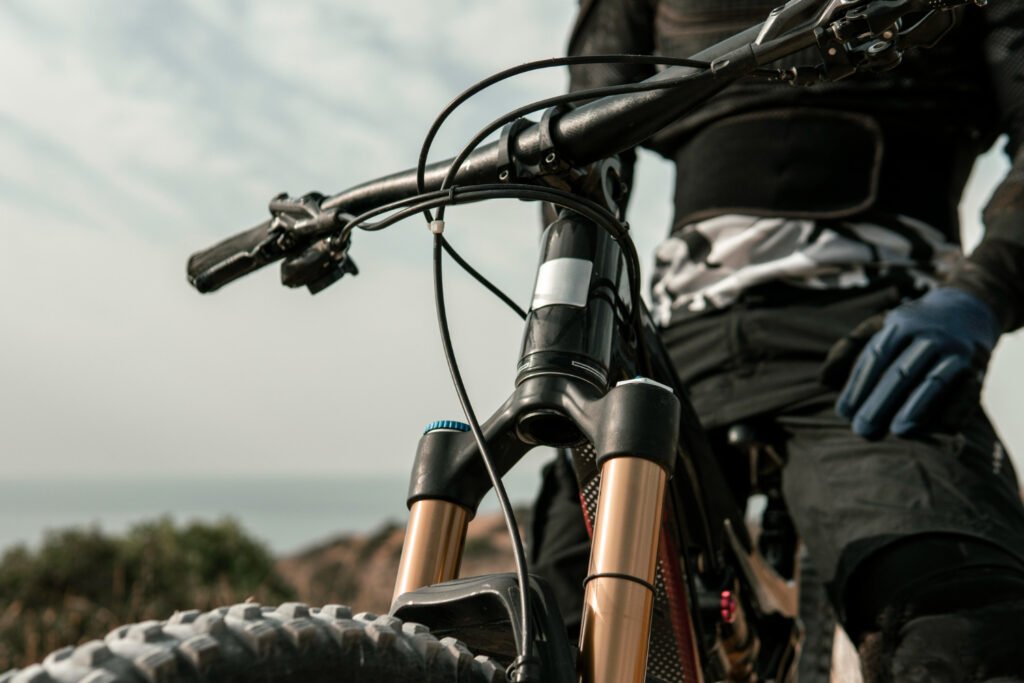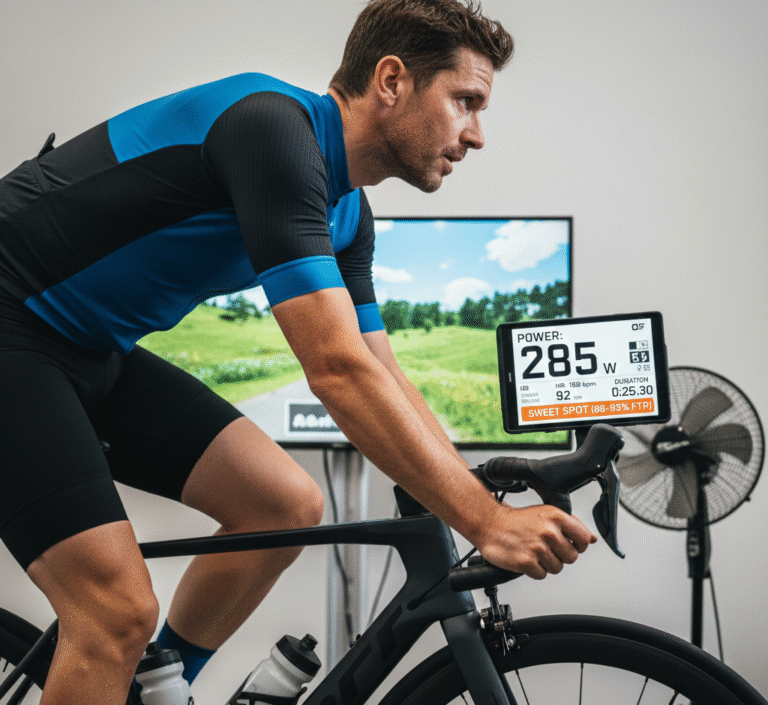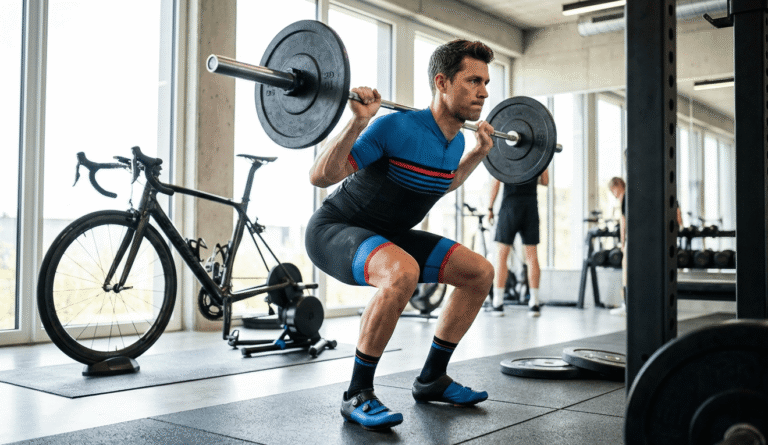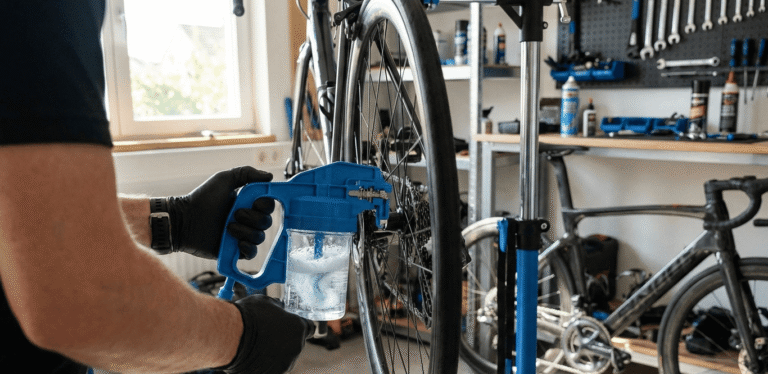The Best Fluffy Pancakes recipe you will fall in love with. Full of tips and tricks to help you make the best pancakes.

Mountain biking isn’t just about the bike—it’s about having the right gear that keeps you safe, efficient, and ready for anything the trail throws your way. Whether you’re riding cross-country trails or tackling steep technical descents, being properly equipped transforms your experience from risky to rewarding.
In this complete equipment guide, we break down the essential mountain biking gear every rider should carry—from protective equipment and repair kits to hydration strategies and navigation tools. Whether you’re just getting started or dialing in your setup for more serious rides, this post gives you a comprehensive checklist tailored to real trail conditions.
Protective Gear: Your Safety Foundation in Mountain Biking
Safety equipment forms the cornerstone of responsible mountain biking and should never be compromised. A quality helmet with MIPS technology protects against both direct impacts and dangerous rotational forces during crashes. Modern trail and enduro helmets offer superior coverage and ventilation for aggressive cycling. Full-finger gloves provide essential grip enhancement while reducing hand fatigue and vibration transfer. Padded palms absorb shock from rough terrain and protect against abrasions during falls.
Knee pads have become standard equipment for serious mountain biking enthusiasts tackling technical terrain:
- Soft-shell designs: Comfortable for pedaling while providing moderate protection
- Hard-shell options: Maximum protection for downhill cycling and bike parks
- Elbow pads: Additional security for riders pushing limits on rocky trails
- Quality cycling eyewear: Shields eyes from dust, debris, insects, and harmful UV radiation
This protective foundation allows confident progression in mountain biking while minimizing injury risks significantly.
Repair and Maintenance Kit: Trail-Side Problem Solving
Mechanical reliability determines whether your mountain biking adventure ends successfully or becomes an expensive rescue operation. A comprehensive multi-tool with Allen keys, Torx bits, and chain breaker handles most trail-side adjustments and repairs. Quality tire levers make tubeless tire removal possible when plugs fail completely. Spare tubes provide backup even for tubeless setups, while plug kits offer quick fixes for small punctures.
Essential repair kit components include:
- Multi-tool: Handles adjustments and repairs (150-200g weight)
- Tire levers: Essential for tire removal (50g weight)
- Spare tube or tubeless plugs: Flat tire fixes (100-150g weight)
- Mini pump or CO₂ cartridges: Portable inflation solutions
- Chain links or quick-links: Emergency drivetrain fixes for broken chains
This repair foundation prevents minor mechanical issues from ending your mountain biking session prematurely.
Hydration and Nutrition: Fueling Your Mountain Biking Performance
Proper hydration and nutrition directly impact your mountain biking performance, safety, and enjoyment levels. Hydration packs carrying 1.5-3 liters work best for longer cycling adventures and technical terrain. Water bottles in frame cages suit shorter rides and cross-country perfectly. Electrolyte replacement becomes critical during hot weather or intense climbing sessions when sweat rates increase dramatically.
Energy management through proper nutrition prevents the dreaded bonk that ends rides prematurely:
- Energy gels: Quick-absorbing carbohydrates for immediate fuel during challenging climbs
- Trail bars: Sustained energy release for longer mountain biking adventures
- Natural options: Dates, bananas, or homemade energy balls work excellently
- Electrolyte tablets: Replenish sodium, potassium, and magnesium during sweat-heavy cycling
- Timing strategy: Plan nutrition intake based on ride duration and intensity
Plan your fueling strategy for optimal mountain biking performance across all conditions.
Carry Systems: Organizing Your Mountain Biking Equipment
Efficient gear organization enhances your mountain biking experience while ensuring essential equipment stays accessible and secure. Hydration packs offer the best solution for technical riding, keeping weight centered and hands free. Quality packs feature dedicated tool storage, pump attachments, and easy-access pockets for nutrition. The integrated hydration bladder provides hands-free drinking during challenging cycling sections.
Storage system options for different mountain biking styles:
- Hydration packs (10-20L capacity): Best for technical trails and longer rides
- Saddle bags (1-3L capacity): Ideal for XC cycling and minimalist approaches
- Frame-mounted storage: Additional capacity without affecting bike handling
- Tool wraps: Discreet under-saddle storage for essential repair items
- Jersey pockets: Easy access to nutrition and small items during cycling
Choose your carry system based on riding style, typical ride duration, and personal mountain biking preferences.
Clothing and Layers: Comfort and Performance in All Conditions
Appropriate clothing dramatically impacts comfort, performance, and safety during mountain biking adventures across varying conditions. Moisture-wicking jerseys keep skin dry and regulate body temperature during intense cycling efforts. Quality fabrics dry quickly and resist odors even after long rides. Padded mountain biking shorts or liner shorts reduce saddle discomfort and prevent chafing during extended sessions.
Layering systems adapt to changing weather conditions throughout your cycling adventure:
- Base layers: Moisture-wicking materials for temperature regulation
- Windproof vests: Core warmth without overheating during climbs
- Arm and leg warmers: Adjustable temperature control as conditions change
- Packable rain shells: Protection against sudden weather changes in mountains
- Breathable fabrics: Materials that move naturally with your body during cycling
- Season-appropriate choices: Adapt clothing to local climate and trail conditions
Choose clothing that provides appropriate protection for your mountain biking terrain and conditions.
Safety and Navigation Essentials: Staying Found and Prepared
Navigation tools and safety equipment provide peace of mind during mountain biking adventures in unfamiliar terrain. GPS devices like Garmin or Wahoo units offer detailed trail maps, elevation profiles, and route guidance. Smartphone apps provide backup navigation but drain batteries quickly in remote cycling areas. Physical trail maps serve as reliable backup when electronics fail completely.
Essential safety items for responsible mountain biking:
- First aid kits: Bandages, antiseptic wipes, blister treatment, and pain relievers
- Emergency identification: Medical information proves crucial if accidents occur during solo cycling
- Trail bells: Alert hikers and other cyclists politely on shared paths
- Emergency whistle: Signal for help in remote mountain biking areas
- Emergency contact card: Include local emergency numbers and medical conditions
- Backup lighting: Small LED light for unexpected late returns from cycling adventures
These safety essentials ensure you’re prepared for emergencies while being a responsible trail user.
Summary
Mountain biking demands more than just pedal power—it requires smart preparation and the right gear. Here’s a breakdown of what every mountain biker should consider:
- Protective gear like MIPS helmets, gloves, and knee pads reduces injury risk while enhancing rider confidence.
- A repair and maintenance kit ensures you can handle mechanical issues on the trail, preventing ride-ending failures.
- Proper hydration and nutrition strategies fuel endurance and performance, especially on long or technical rides.
- Carry systems such as hydration packs, saddle bags, and tool wraps keep gear secure and accessible.
- Clothing layers built for movement, moisture control, and changing weather help maintain comfort and performance.
- Safety and navigation tools—including GPS units, trail maps, first aid kits, and emergency contacts—keep you oriented and prepared.
If you’re just entering the sport or building your base of knowledge, make sure to check out our foundational Mountain Biking Guide, where we cover everything from bike types to riding techniques.









